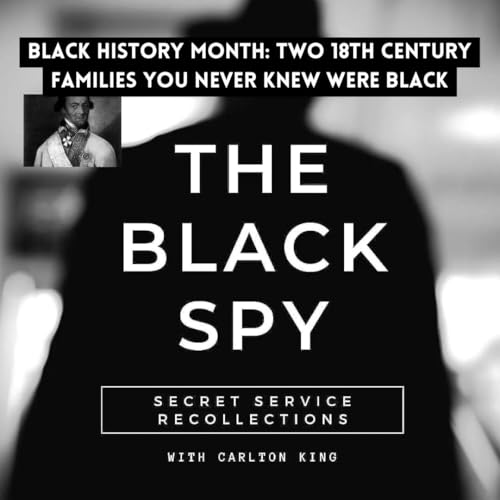How Western governments, the media & billionaires have dumbed us down! (Part 2)
The Black Spy Podcast 208, Season 21, Episode 0009
In this week’s second part of a two-part edition of The Black Spy Podcast, Dr. Rachel Taylor rejoins Carlton King to continue dissecting the forces that they began explaining last week.
Dr. Rachel she argues, governments, billionaires and the mainstream mass media they control, have combined to engineer a less critical, more malleable Western society. Together, they explore how political expediency, cultural trends, and financial power converge to shape the mindset of citizens — often to the advantage of elites.
Together Carlton and Rachel explore Wokeism, Infantilization, Political Expediency and undue influence by Big Business, Billionaires, and the powers that be have dumbed down western styled democracyThe discussion tackles the rise of wokeism as both a cultural movement and a political tool. Dr. Taylor examines how, rather than promoting genuine inclusivity or tolerance, the rhetoric of “wokeness” is often used superficially by politicians and institutions to avoid deeper, more difficult reforms. This, she argues, has infantilized Western youth, encouraging them to view the world through oversimplified moral binaries rather than cultivating resilience, complexity of thought, or responsibility. Carlton and Dr. Taylor ask whether this culture of fragility has left the next generation more dependent, less capable of critical thinking, and easier to manipulate.
Moreover Dr. Rachel and Carlton also turn the minds to the influence of corporations and billionaires, highlighting how immense financial power shapes political agendas. They suggests that the alignment of big business and political actors promotes short-term expediency over long-term strategy, leaving the average citizen disempowered and distracted. Through advertising, media control, and cultural sponsorship, corporations not only influence consumption but also reinforce the infantilization of society by rewarding conformity and discouraging dissent. The result, they argue, is a Western public increasingly unable — or unwilling — to challenge authority or demand genuine accountability. All aspects reinforvced by the mainstream mass media who now hire news readers not analytical news anchors.
Conclusion Across both episodes, the conversation underscores a provocative thesis: that Western citizens have been systematically dumbed down through a cocktail of cultural manipulation, political calculation, mainstream media manipulation and financial dominance. Dr. Taylor contends, that this serves the interests of those who benefit from a passive, compliant, and distracted public.
Listeners can expect a forthright, challenging dialogue that pulls no punches in questioning the health of Western democracy and the resilience of its citizens in the face of elite control.
Please don’t forget to subscribe to the Black Spy Podcast for free, so you'll never miss another fascinating episode.
To contact Firgas Esack of the DAPS Agency go to Linked In
To contact Carlton King by utilising any of the following:
To donate - Patreon.com/TheBlackSpyPodcast
Email: carltonking2003@gmail.com
Facebook: The Black Spy Podcast
Facebook: Carlton King Author
Twitter@Carlton_King
Instagram@carltonkingauthor
To read Carlton's Autobiography:
“Black Ops – The incredible true story of a (Black) British secret agent”
Click the link below:
https://amzn.eu/d/fmzzq9h
 Oct 19 202549 min
Oct 19 202549 min 41 min
41 min 51 min
51 min 36 min
36 min 50 min
50 min 1 h et 30 min
1 h et 30 min 51 min
51 min 37 min
37 min
